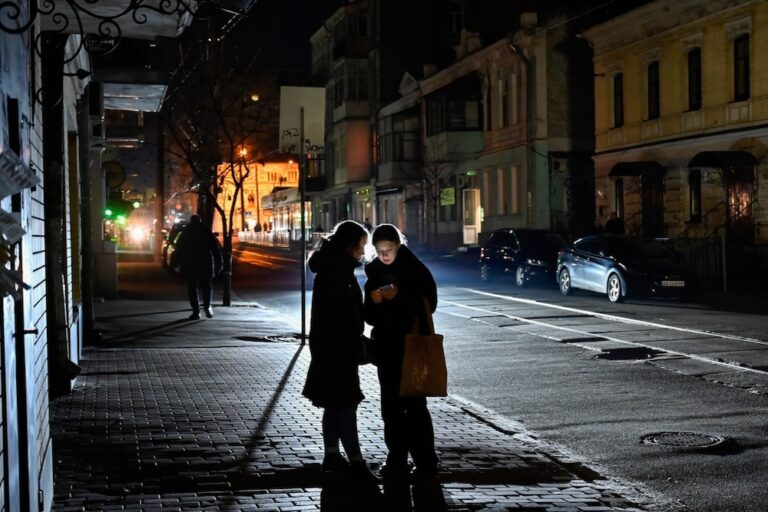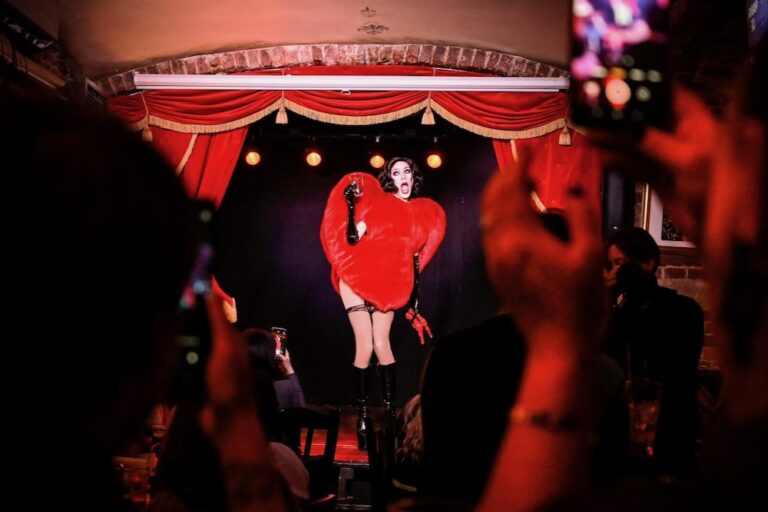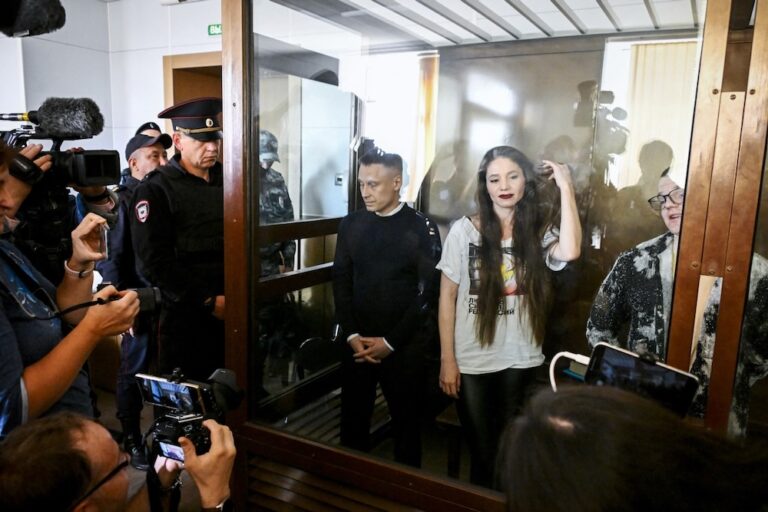(RSF/IFEX) – In letters addressed to Russian Minister of Justice Yuri Chaika and Minister of Defence Igor Sergeyev, RSF protested the Russian Supreme Court’s decision to send journalist Grigori Pasko back before a military court. “After spending two years in jail on the basis of unfounded accusations, Grigori Pasko continues to face judicial persecution. This […]
(RSF/IFEX) – In letters addressed to Russian Minister of Justice Yuri Chaika and Minister of Defence Igor Sergeyev, RSF protested the Russian Supreme Court’s decision to send journalist Grigori Pasko back before a military court.
“After spending two years in jail on the basis of unfounded accusations, Grigori Pasko continues to face judicial persecution. This relentless attack by the authorities is beyond all understanding,” said Robert Ménard, the organisation’s secretary-general. “It would be intolerable if Grigori Pasko were to be imprisoned anew,” added Ménard.
According to information received by RSF, on 21 November 2000, the Russian Supreme Court’s military section announced its decision to send Pasko back before Vladivostok’s Military Court. Captain Pasko, a journalist with the navy’s daily newspaper “Boevaya Vakhta”, was imprisoned on 20 November 1997. The journalist was accused of “gathering state secrets with the intention of transmitting them to foreign organisations”. A correspondent with “Boevaya Vakhta” aboard the Russian tanker TNT 27 at the time, Pasko had filmed the pouring out of liquid radioactive waste in the Sea of Japan. These images, which were broadcast by Japanese television station NHK without the journalist’s approval, gave rise to sharp reactions in Japan. Pasko also wrote articles about pollution caused by the seeming abandon of Russian army nuclear submarines and the FSB’s (Russian security services, former KGB) involvement in the trafficking of nuclear waste.
In April 1998, Pasko’s detention was extended by the Vladivostok region’s military prosecutor. His trial, held in camera, was opened before Vladivostok’s Military Court on 14 October 1999. His lawyers were prohibited from informing the press and threatened with being removed from the case should they not obey the court’s orders. The case was eventually brought before Moscow’s Supreme Court.
RSF recalled that the information published by the journalist at the time was already in the public sphere and could not be characterised as “state secrets”. The Russian media law stipulates that “all journalists have the right to research, request, receive and distribute information” (Article 47). Moreover, according to Articles 41 and 42 of the Russian Constitution, the retention of information about the environment or catastrophes threatening human life is a violation of the law, liable to prosecution.


